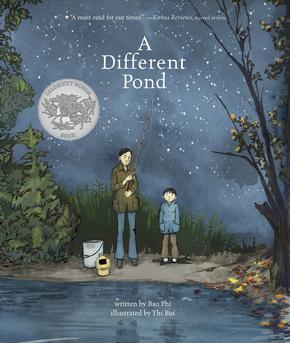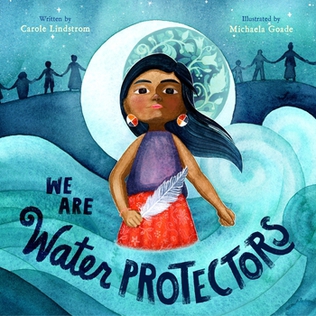Taro Yashima was a Japanese-American artist and children's book author. He immigrated to the United States in 1939 and assisted the U.S. war effort.
Evaline Ness was an American commercial artist, illustrator, and author of children's books. She illustrated more than thirty books for young readers and wrote several of her own. She used a great variety of artistic media and methods.
Barbara Cooney was an American writer and illustrator of 110 children's books, published for over sixty years. She received two Caldecott Medals for her work on Chanticleer and the Fox (1958) and Ox-Cart Man (1979), and a National Book Award for Miss Rumphius (1982). Her books have been translated into ten languages.

The Egg Tree is a 1950 book by Katherine Milhous that won the 1951 Caldecott Medal. It is based on the author's family tradition and tells the classic tale of a Pennsylvania Dutch Easter, with its main characters being Katy and Carl. One day, near Easter, they look for Easter eggs and found eggs that their grandmother had painted on a tree. They are interested, so they ask their grandmother about the eggs. They eventually create one, and it becomes a big success the next Easter.

Tuesday, written and illustrated by David Wiesner, is a 1991 wordless picture book published by Clarion Books. Tuesday received the 1992 Caldecott Medal for illustrations and was Wiesner's first of three Caldecott Medals that he has won during his career. Wiesner subsequently won the Caldecott Medal in 2002 for The Three Pigs, and the 2007 medal for Flotsam.
Sesyle Joslin is a children's literature author. Joslin's book What Do You Say, Dear? was illustrated by Maurice Sendak and it was a Caldecott Medal Honor book in 1959.
Lynn Joseph is an author of children's books and an American lawyer. Her novella The Color of My Words won an Américas Award for Children's and Young Adult Literature and a Jane Addams Children's Book Award.

A Sick Day for Amos McGee is a 2010 children's picture book written by Philip C. Stead and was illustrated by Erin E. Stead. The book, published by Roaring Brook Press, depicts a zookeeper who has bonded with the animals he cares for and who come and visit him one day when he gets sick. Phillip Stead wrote the book hoping his wife Erin would illustrate it after a period where she had become discouraged with her art. The book was well reviewed, and Erin won the 2011 Caldecott Medal for her illustrations. The book received praise for its woodblock illustrations and for its message about what friends will do to help and support each other.

A Ball for Daisy is a 2011 children's wordless picture book written and illustrated by Chris Raschka. The book tells the story of a dog named Daisy, who has a beloved ball destroyed and then replaced. Raschka won the 2012 Caldecott Medal for his illustrations in the book. The creation of the book took years but was praised for its ability to evoke emotion in the reader. A sequel, Daisy Gets Lost, was released in 2013.

Mitsu Yashima was an artist, children's book author, and civic activist.

Locomotive is a 2013 children's book written and illustrated by Brian Floca. A non-fiction book written primarily in free verse, the book follows a family as they ride a transcontinental steam engine train in summer of 1869. The book details the workers, passengers, landscape, and effects of building and operating the first transcontinental railroad. The book also contains prose about the earlier and later history of locomotives. The book took Floca four years to create, which included a change in perspective from following the crew of the train to following a family. Floca conducted extensive research including his own train ride and consultation with experts to ensure he had the details all correct.

This One Summer is a graphic novel written by Mariko Tamaki and illustrated by Jillian Tamaki published by First Second Books in 2014. It is a coming of age story about two teenage friends, Rose and Windy, during a summer in Awago, a small beach town. Rose and Windy discover themselves and their sexuality while battling family dynamics and mental disabilities.

Radiant Child: The Story of Young Artist Jean-Michel Basquiat is a 2016 picture book biography by Javaka Steptoe about Jean-Michel Basquiat. Using a style similar to Basquiat's, the book tells the story of his childhood and early career. It won the 2017 Caldecott Medal and Coretta Scott King Illustrator Award for its illustrations.

Wolf in the Snow is a 2017 wordless picture book by Matthew Cordell. The book was favorably received by critics and won the 2018 Caldecott Medal. The story has drawn comparisons to fairy tales like Little Red Riding Hood. The nearly wordless book tells the story of a girl and wolf who each get lost in the snowstorm. Cordell used distinctive illustration techniques for the girl and the wolf.

A Different Pond is a 2017 children's picture book by Bao Phi, illustrated by Thi Bui. The book tells the story of a boy and his father going fishing. Phi created the book because of his desire to have books about people like himself to read to his daughter. Bui's detailed illustrations allowed Phi to remove elements of the prose. Bui, who had never illustrated a traditional picture book before, won praise for her use of colors and was recognized with a 2018 Caldecott Honor. The book received positive reviews and appeared on best of 2017 book lists.

A Big Mooncake for Little Star is a 2018 picture book written and illustrated by Grace Lin. The story is about Little Star gradually eating the mooncake that her mother has baked. The book was a departure for Lin both thematically and in her use of illustrative style. The book was well reviewed and was awarded a Caldecott Honor in 2019. The illustrations feature heavy use of black and rely on both the pictures and words to convey the story and its themes.

Crow Boy is a 1955 picture book written and illustrated by Taro Yashima. The book tells the story of a shy Japanese boy named Chibi who hides at school until a new teacher takes notice of him. The book was a recipient of a 1956 Caldecott Honor for its illustrations and shared the 1955 Child Study Association Children's Book Award with Plain Girl by Virginia Sorensen. This book was translated into Japanese by Taro himself and published in Japan in 1979.

We Are Water Protectors is a 2020 picture book written by Carole Lindstrom and illustrated by Michaela Goade. Written in response to the Dakota Access Pipeline protests, the book tells the story of an Ojibwe girl who fights against an oil pipeline in an effort to protect the water supply of her people. It was published by Roaring Brook Press on March 17, 2020. The book was well received. Critics praised its message of environmental justice, its depiction of diversity, and the watercolor illustrations, for which Goade won the 2021 Caldecott Medal, becoming the first Indigenous recipient of the award. The book also received the 2021 Jane Addams Children's Book Award winner in the Books for Younger Children category.

Watercress is a children's book written by Andrea Wang, illustrated by Jason Chin, and published on March 30, 2021 by Neal Porter Books.

Going Down Home with Daddy is a 2019 picture book written by Kelly Starling Lyons and illustrated by Daniel Minter. It tells the story of a young boy who attends a large family reunion at his great-grandmother's house and struggles to prepare a contribution to the family celebration. Inspired by Lyons's visit to a family gathering in rural Georgia, the book was published by Peachtree Publishing on April 1, 2019. The acrylic illustrations incorporate Adinkra symbols representing various concepts in Ghanaian culture. Critics praised the book's themes of family culture and heritage as well as Minter's illustrations, for which it received a Caldecott Honor in 2020. It also received the 2019 Lupine Award in the Picture Book category.















